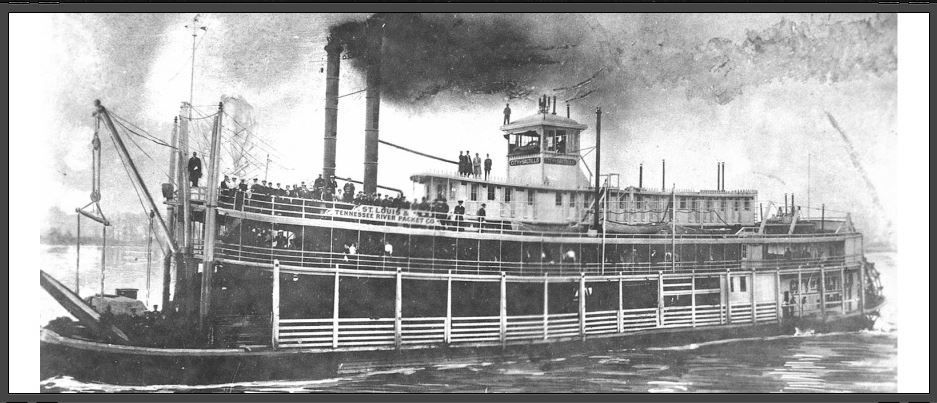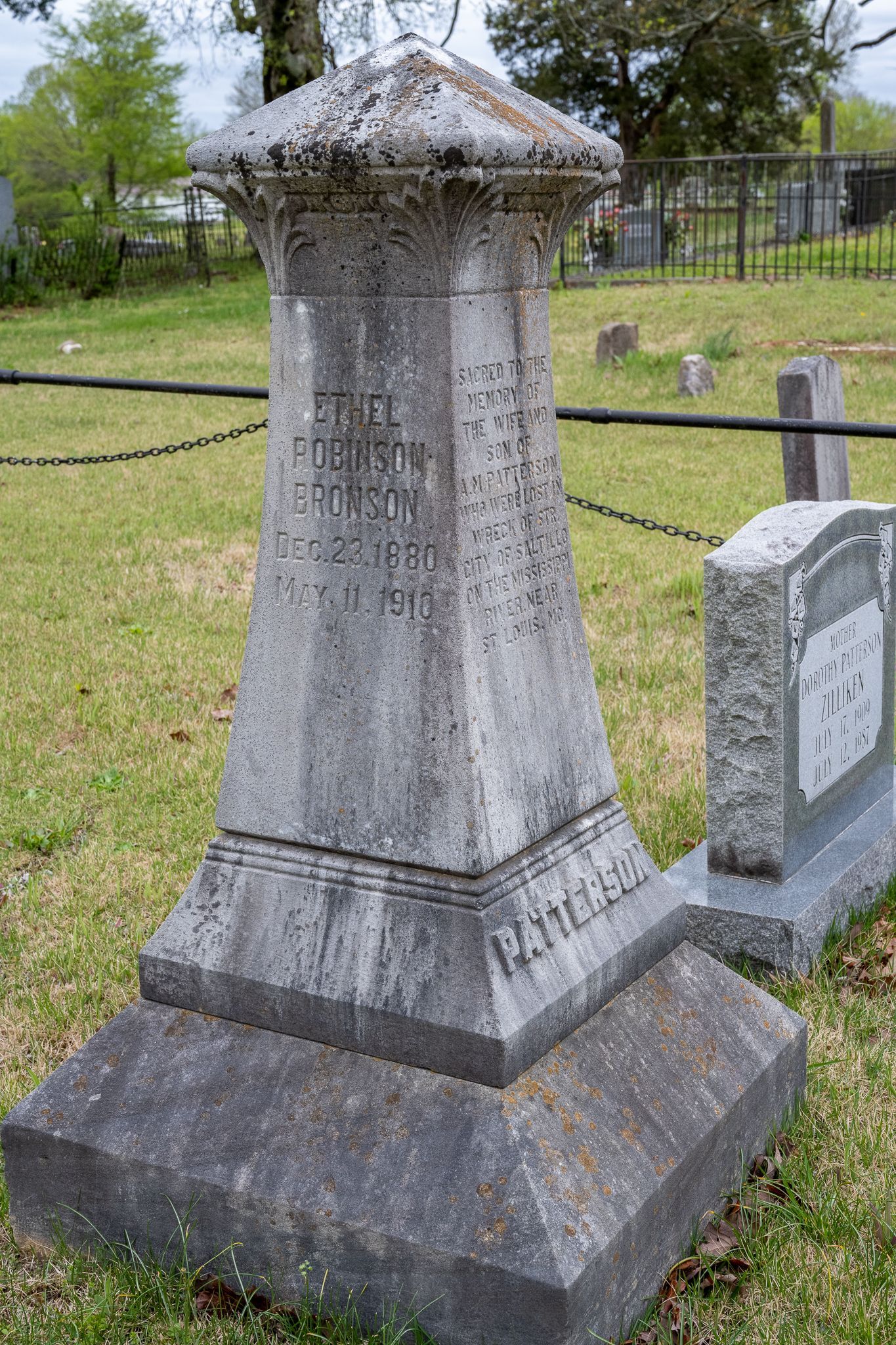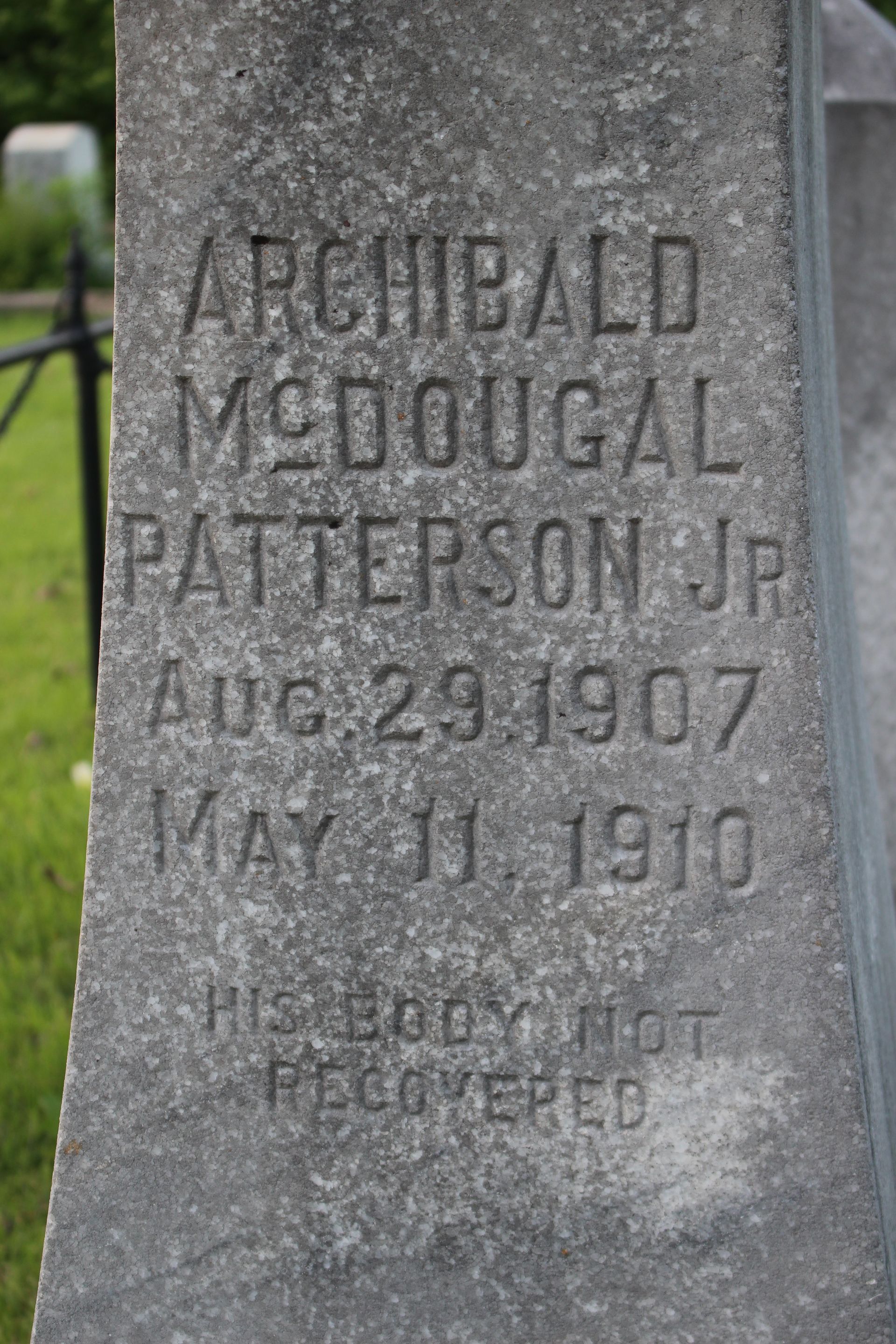It had been a lovely visit with her family in St. Louis. Ethel Bronson Patterson’s parents, Edward and Ida Emeline Bronson, had spent time with their grandchildren, two-year-old Archie and his nine-month-old sister Dorothy, while Ethel had enjoyed seeing her brother again. But the visit had come to an end and a return home was in order, a trip her mother planned to make with her, supposedly to assist with the care of the children as the family made their way back to Nashville, but the thought of an extended visit with the little ones might also have played a part in her decision.
They boarded the steamer The City of Saltillo at 7:00 the evening of May 11th; its ultimate destination was Waterloo, Alabama with stops at several river ports along the way. There were 27 passengers in all, several of whom were aboard as guests of Jennie Rhea, the wife of Isaac Taylor Rhea who owned the Tennessee River Packet Co.—which owned and operated The City of Saltillo.
Some of the travelers had retired immediately after dinner, intending to rise early the next morning in order to see Halley’s Comet, while the younger ones proceeded to dance the night away. As the steamer approached the river port of Glen Park the pilot realized the boat was being drawn to the shore. Frantically, he tried to steer The Saltillo into the channel, but his efforts to turn the boat failed. With no other options, he ordered the engines thrown into reverse, but the steamer struck the rocks that had been hidden by the high stage of the river and the smoke from a nearby lime kiln. Lurching to one side, the deck and cabins began to fill with water as the timbers of the hull could be heard splintering. Members of the crew of 30 and some of the male passengers began running from cabin to cabin, trying to rouse those who had already settled in for the night. In the chaos that ensued a fire broke out at the rear of the boat; even though it was quickly extinguished by the water rushing onto the deck, the sight of the flames only increased the panic already overwhelming the passengers and crew.
Within five minutes, The City of Saltillo was resting on her side on the bottom of the river in 20 feet of water.















